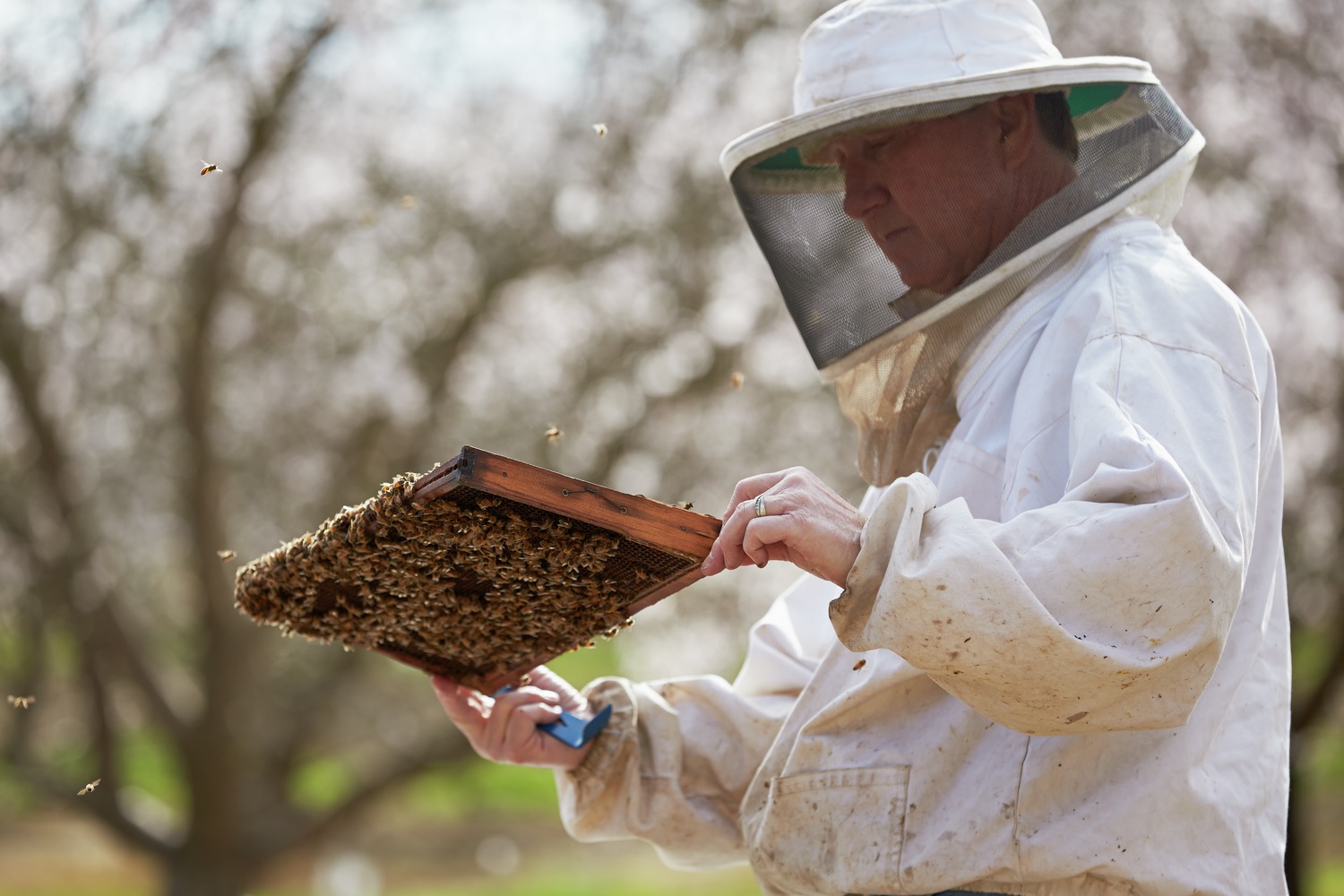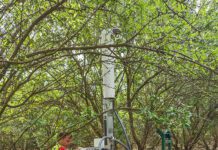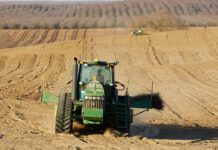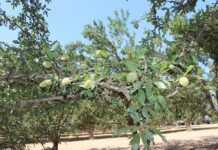Doubling down on attention to pollinator health, California’s almond community has announced a five point Pollinator Protection Plan that emphasizes the importance pollinators in almond production.
The Almond Board of California is partering with Pollinator Partnership, a non profit organization that is dedicated to the protection and promotion of pollinators and their ecosystems. This partnership includes promotion of the Bee Friendly Farming certification program for almond growers. Goal of the partnership is to expand the number of almond growers who provide habitat for pollinators. Certification comes with benefits for the grower, including use of a logo for marketing.
The second component of the plan is education. The Almond Board has a history of communicating to growers how to balance crop protection with a safe environment for bees. This year, the board has expanded its communication strategy with a series of in the orchard workshops to demonstrate techniques that can be applied by growers to protect and nurture both managed bees and native pollinators. These best management practices will include planting bee forage and cover crops.
The Almond Board is also promoting tools for better communication between growers, beekeepers and pest control advisors. BeeWhere, a new digital mapping tool offers a way for beekeepers to mark their hive location with an app on their phone. Growers and their PCAs can access information on hive locations as they make plans for pest control applications. In advance of the 2020 bloom, ABC is communicating with all stakeholders about the availability of this new tool.
The board is also working with Project apis m. to increase on-farm floral diversity. Research has shown that while almond pollen is a good nutrition source for bees, they also need a variety of pollen sources in their diet. Working with Project apis m., ABC is encouraging all almond growers to plant bee pastures and hedgerows within or adjacent to their orchards to increase food sources for all pollinators. This has been an on-going effort by the almond community as since 2013, 34,00 acres of bee pasture have been planted.
The board is also supporting bee health research. Through ABC, California almond growers have funded more honey bee research than any other crop. This year, ABC is funding five new studies aimed at improving bee health. Since 1995, ABC has funded 125 research projects to address the five major factors impacting honey bee health: varroa mites, pathogens , lack of genetic diversity, pesticide exposure and access to forage.
Bee export Gordon Wardell said that even though media reports of honeybee losses have continued, the number of managed colonies of bees has risen since 2010 and the number of beekeepers nationwide has also increased.











